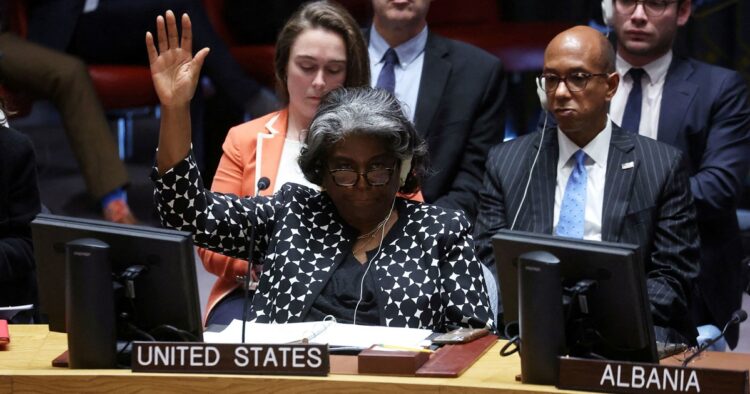The United States blocked a resolution at the United Nations that called for an immediate ceasefire in Gaza. This happened on Tuesday while Israel continued its attacks on the region, raising concerns about the worsening humanitarian situation.
Efforts by global powers to find a solution to the escalating crisis have not been successful. Mediators have been trying to negotiate a truce, but so far, no agreement has been reached. Two different ceasefire proposals were presented at the UN, but the US vetoed the first one.
The vetoed proposal, put forward by Algeria, demanded an immediate ceasefire and the release of hostages taken during attacks on October 7. The US Ambassador to the UN, Linda Thomas-Greenfield, criticized the vote, calling it “wishful and irresponsible” and warning it could harm ongoing negotiations.
Facing pressure to reduce support for Israel, the US proposed an alternative resolution emphasizing support for a temporary ceasefire in Gaza. However, this draft is unlikely to be adopted in its current form and may face a Russian veto.
As diplomatic efforts continue, Israel continued its airstrikes and ground operations in Gaza, resulting in the deaths of 103 Palestinians in the past 24 hours, according to the health ministry.
The United Nations has repeatedly expressed alarm over the dire humanitarian situation in Gaza, warning that food shortages could lead to preventable child deaths.
Despite efforts to deliver aid, the situation remains chaotic. The UN’s food program had to halt deliveries due to violence and disorder. More than four months of fighting have devastated Gaza, leaving millions on the brink of famine and displacing much of the population.
The lack of access to food and water has led to a rise in malnutrition, especially among children in northern Gaza.
The European Union, except Hungary, called for an immediate humanitarian pause and urged Israel to refrain from invading Rafah, a city sheltering many Palestinians and a crucial entry point for relief supplies.
The conflict began when Hamas launched an attack on October 7, resulting in casualties in Israel. In retaliation, Israel launched a campaign in Gaza, resulting in thousands of deaths.
Efforts to negotiate a truce have been hampered by ongoing violence and disagreements over terms. Meanwhile, Hamas leader Ismail Haniyeh arrived in Cairo for talks with Egyptian officials, but prospects for a truce remain uncertain.
The lack of progress in securing the release of Israeli hostages held in Gaza has sparked protests in Israel. Families of the hostages are calling for urgent action to bring their loved ones home.

















Comments